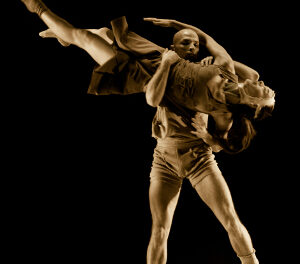The fine auditorium of Carol Woods Retirement Community is the ideal venue for hearing the virtuosity of the many musicians on the faculties of Triangle universities. This concert featured Brent Wissick who has taught cello, viola da gamba, and chamber music at the University of North Carolina at Chapel Hill since 1982. Perhaps best known for HIP (Historically Informed Practice) using period instruments, his concert focused on twentieth-century works for cello. He was joined by James Rice, a freelance pianist in the Triangle area and a faculty member of the Triangle Music School in Durham.
Arnold Schoenberg (1874-1951) met famed cellist Pablo Casals in Vienna. In 1933 he transcribed for cello a harpsichord concerto by the baroque composer Georg Matthias Monn (1717-50) for Casals who considered it too demanding. The first public performance was by Emanuel Feuermann in London in 1935. Schoenberg very freely adapted the Monn score and extensively added counterpoint and harmonies characteristic of the 19th century. It is in three movements: Allegro moderato, Andante alla Marcia, and tempo de minuetto.
Wissick selected the second movement Andante alla Marcia. He played the entire movement with a mute on the strings which he said gave it a mood of remembrance, a theme which ran through many of the works on the program. Schoenberg kept the accompaniment p or pp when it supported the cello but unleashed it when the cello rested. Wissick’s intonation was immaculate during exposed high passages; some passages, remarkably ppp, practically floated notes especially at the end. The sudden interweaving of Romantic passages amidst faux-Baroque was amusing. Balance between Rice’s keyboard and Wissick’s cello was ideal.
Max Reger (1873-1916) was opposed to program music such as much of Richard Strauss’ works, being interested in composing only “absolute” forms. He was a master of polyphony and created complex harmonic procedures. Besides the example of Brahms, the works of Johann Sebastian Bach served as a model. Reger’s three Suites for Cello are perfect examples. From Suite No. 2 in D minor (1915), Wissick chose the second of its four movements, Gavotte (Allegretto). A gavotte is an old French dance in common time beginning on the 3rd beat of the bar. Wissick gave an exuberant performance of this wonderfully good-humored (especially for echt-serious Reger) movement filled with playful pizzicatos and rhythmic zest.
There is a North Carolina connection to After Reading Shakespeare for solo cello by Ned Rorem (b. 1923). It was commissioned and premiered March 15, 1981 by cellist Sharon Robinson who preceded Fred Raimi in the Ciompi String Quartet. Rorem said this work “is a refutation of the notion that a rich-sounding string instrument such as a cello requires any accompaniment.” It is a suite of nine movements that evokes characters from the plays, such as King Lear, or brief quotes from the sonnets. Rorem added many of the titles after having composed the movements.
Wissick chose the 8th movement “Remembrance of Things Past” which draws upon lines from Sonnet 30: “When to the sessions of sweet silent thought / I summon up remembrance of things past, / I sigh the lack of many a thing I sought…” He spun this bittersweet, melancholy melody with great warmth of tone and seamless line. Perhaps he can plan a full performance in the near future?
Three selections from composer Kurt Weill (1900-50) came next. Weill studied with Humperdinck and Busoni. He created a new school of popular opera that was widely successful in Germany but that became implacably attacked by the Nazis as they arose to power. His works capture the flavor of the era while successfully fusing jazz with Classical elements. His breakthrough came in 1928 with his updating of Beggar’s Opera, called Der Dreigroschenoper (The Threepenny Opera), which evokes contemporary German life with topical references and has a jazzy and harsh but brilliant score. The original German words were by Bertolt Brecht.
The only complete work on Wissick’s program was Weill’s Sonata for Cello and Piano (1920). It is in three movements: Allegro ma non troppo, Andante espressivo, and Allegro assai: Wild bewegt, grotesk vorzutragen. It was not played during the composer’s lifetime only having been premiered in 1975.
Wissick and Rice perfectly brought out the sense of a twenty-year old composer seeking his own style as rich Strauss-like passages mixed with whiffs of Impressionism. The buildup to an ecstatic high at the end of the first movement was beautifully conveyed as was Weill’s early use of jazz idioms in the second movement. Wissick had prefaced the piece by calling the “grotesque” final movement “the Bar scene!” Both players pulled out all the stops, building or staggering to a “fuzzy” end.
Next came the big hit song from The Threepenny Opera, “The Ballad of Mack the Knife.” Some of us have fond memories of a thirty-something Wissick singing and playing viola da gamba for Tobias Hume’s “Tobacco.” As he bowed his cello to Weill’s hit melody, he sang the lyrics, first in the original German of Brecht followed by Marc Blitzstein’s English text. This was justifiably warmly received.
The last Weill selection “My Ship” came from his Lady in the Dark (1941) with lyrics by Ira Gershwin. The concert ended with Julian Lloyd-Webber’s arrangement of “When I’m Sixty-Four” by John Lennon and Paul McCartney. Wissick said the song had a special meaning for him as he neared his 64th birthday! For both of these Wissick stuck to superb entirely instrumental performances ably supported by Rice. I heartily recommend attending any future programs presented by these two fine musicians.











